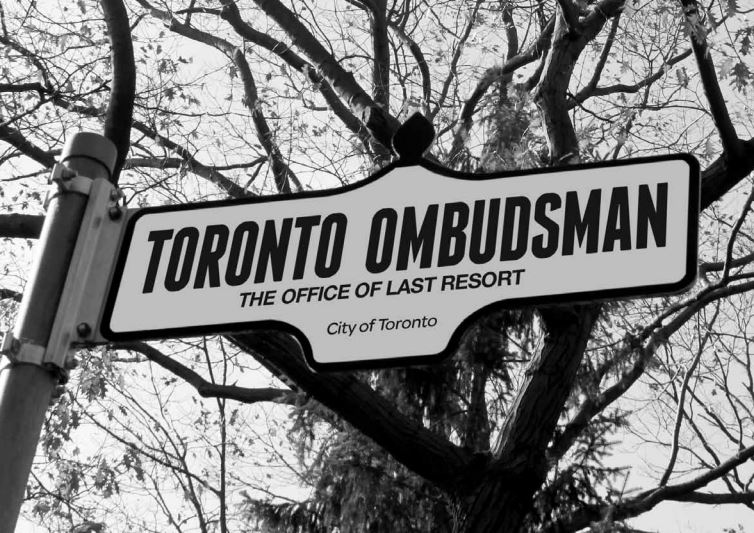
The City of Toronto Ombudsman’s 2011 Report
In her annual report released today, the Ombudsman for the City of Toronto called on the City to fix an oversight remaining from the creation of the City of Toronto Act six years ago. “One of the changes that was considered but never implemented was to give the new city its own Public Service Act,” says Fiona Crean. “This would have set in law the rules that govern the actions of public servants, and make them clear to councillors and the public.”
Crean says she is recommending a Toronto Public Service Act because she believes good governance is increasingly under threat. “It has never been tougher to be a public servant in Toronto. A Public Service Act would strengthen the existing buffers between councillors, public and staff at City Hall and ensure effective decision-making.”
“Right now there is ambiguity and a lack of clarity about the rules governing everyone’s conduct,” says Crean. “There is a variety of policies and guidelines, but there is no foundation document that gives city employees a coherent and comprehensive picture of their rights and responsibilities in law. The existing policies cover a charter of expectations, conflict of interest and whistle blowing. They are a good start, but they lack teeth. Toronto needs a more complete and thorough rule book.”
The Ombudsman says a Public Service Act would:
- Set out the roles and responsibilities of staff in the administration of the public service. Trust in government breaks down if the rules of engagement are not clear.
- Support honest dialogue. Where rules are not formalized, staff can be hesitant to give honest advice to elected representatives for fear of appearing unreliable or offside. This hinders quality decision-making.
- Outline the rights and duties of public servants concerning ethical conduct and political activity, and strengthen their protection.
- Establish a framework for the leadership and management of the public service, and outline the city’s commitment to staff.
Crean says, “Such legislation would ensure a non-partisan, professional, ethical and effective administration that would better serve the public, the government and City Council.”
The Ombudsman says a Public Service Act would also provide a foundation for accountability that is enshrined in law. “That’s why I am recommending City Council ask the Ontario Government to enact a Public Service Act for the City of Toronto. This would be pioneering legislation for municipal governments and could be used as a model for other municipalities in Ontario and across the country.”
In her annual report, the Ombudsman also recommends the City ensure proper support for training and skills development for staff. “During times of fiscal restraint, training budgets are often the first ones offered up for reduction. The recent cut of approximately $120,000 in the city’s training budget is an example. Yet my investigations and case work have found situations where employees received little or no formal training when they were promoted; others did not get the ongoing training they needed to update their technical expertise.”
Overall, says Crean, the public service has responded quickly to her investigative recommendations this year. “The City has achieved a 95% compliance rate, with the outstanding recommendations nearing completion.”
In 2011, the Ombudsman’s office dealt with 1,475 complaints. The most frequently cited problems were, in order: poor communications, poor service, faulty decisions, unpredictable enforcement, and unreasonable delay. The largest source of complaints was Toronto Community Housing Corporation, followed by Municipal Licensing and Standards, Revenue Services, Transportation Services and Parks Forestry and Recreation.